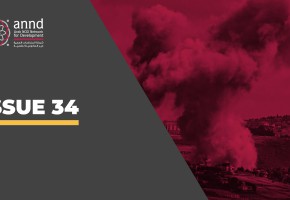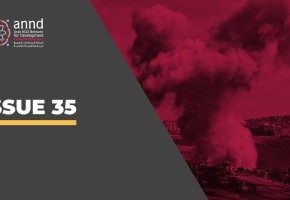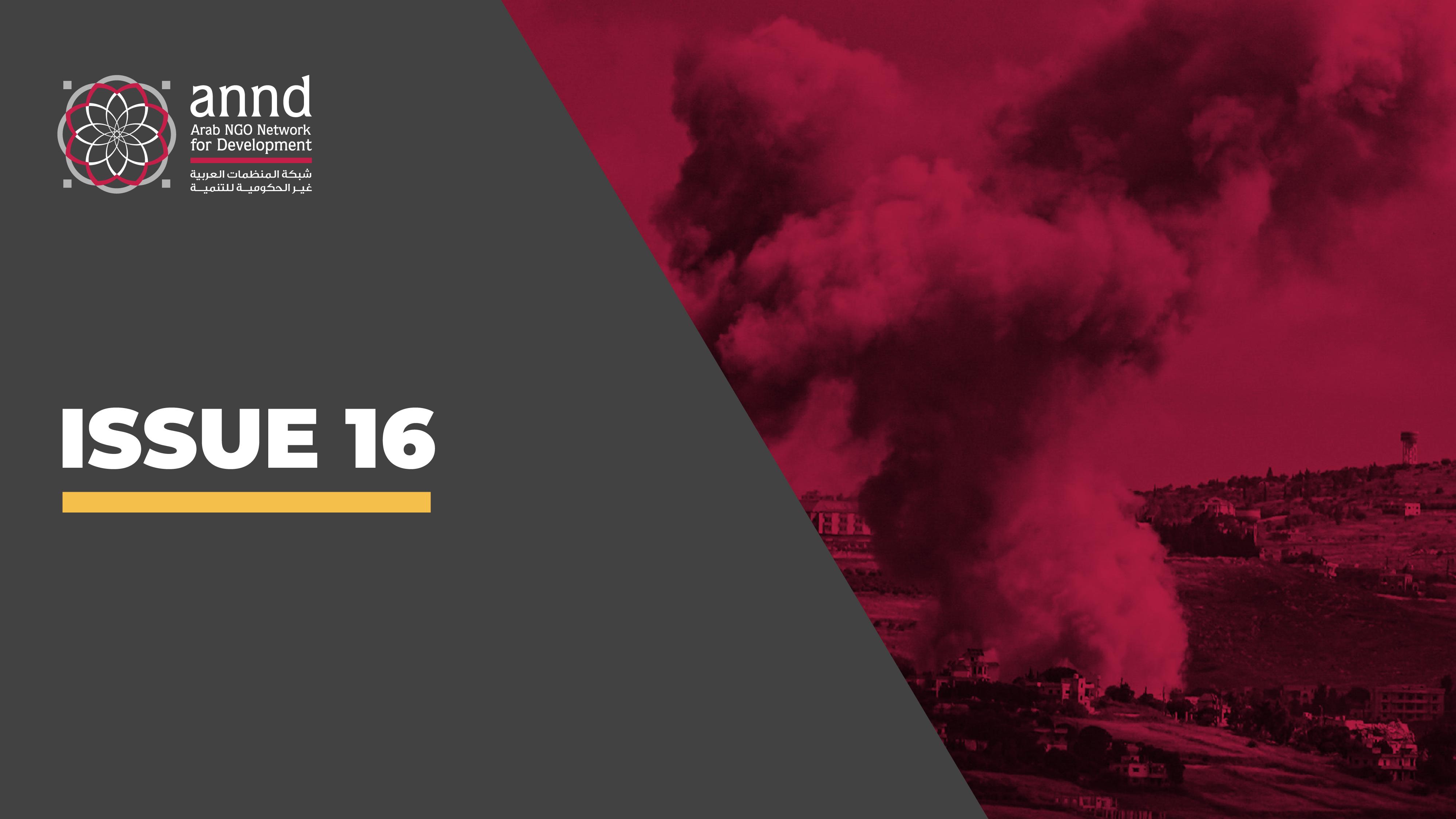
A Region on Fire
Issue 16 - October 12, 2024
The siege on Gaza continues, with a complete lockdown of the northern part of the strip
Warnings of hunger have resurfaced after residents of northern Gaza stated that they have not received any aid since the beginning of the month, and food distribution points have been forced to close due to military operations and evacuation orders. The UN World Food Programme (WFP) confirmed that no food aid has entered the north since October 1st. Last month, the UN special rapporteur on the right to food accused Israel of carrying out a "starvation campaign" against Palestinians.
In Lebanon, the Israeli military escalation has been accompanied by internal diplomatic and political activity aimed at a cease-fire and finding a Lebanese solution to the ongoing political and institutional crisis.
Battlefield Developments in Lebanon
A full day of military escalation and mutual evacuation warnings between Israel and Hezbollah unfolded. The Israeli army launched a series of “fire belts” in the Bekaa region and heavy bombardment in the south and Mount Lebanon. For the first time, it also targeted the towns of Barja (Chouf) and Deir Billa (Batroun), while relative calm prevailed in Beirut and its southern suburbs.
The Israeli Army's Arabic spokesperson Avichay Adraee issued a warning for residents to evacuate 23 towns and villages to the north of the Awali River and avoid heading south to avoid risking their lives. He also warned that ambulances and rescue vehicles, regardless of type, would be targeted if they were found aiding Hezbollah members.
On the other side, Hezbollah announced that its fighters bombed the "7200" military base south of Haifa on Saturday morning, targeting a factory for explosive materials with a barrage of precision rockets. They also claimed to have carried out 24 attacks on Haifa, Safed, towns in Galilee, and gatherings of soldiers and Israeli military positions in the Galilee and the Golan. Hezbollah's noteworthy warning was directed at Israeli settlers, advising them to avoid military gatherings and bases within settlements in major cities, marking the first time the party requested evacuations within Israel.
According to the Disaster Risk Management Unit’s report on the past 24 hours up to Saturday evening, 78 airstrikes and bombings were recorded across various parts of Lebanon, mainly concentrated in the south, Beirut's southern suburbs, and the Bekaa, bringing the total number of attacks since the beginning of the aggression to 9,666, with 524 in the past week.
The Lebanese Ministry of Health reported 26 martyrs and 144 injured, raising the total number of martyrs since the start of the aggression to 2,255, with 10,524 injured, including 94 martyrs and 74 injured from the health sector. Among the casualties are 127 children killed and 890 children injured over the past three weeks.
The United Nations Interim Force in Lebanon (UNIFIL) announced that sites frequently targeted by the Israeli army in southern Lebanon have sustained significant damage.
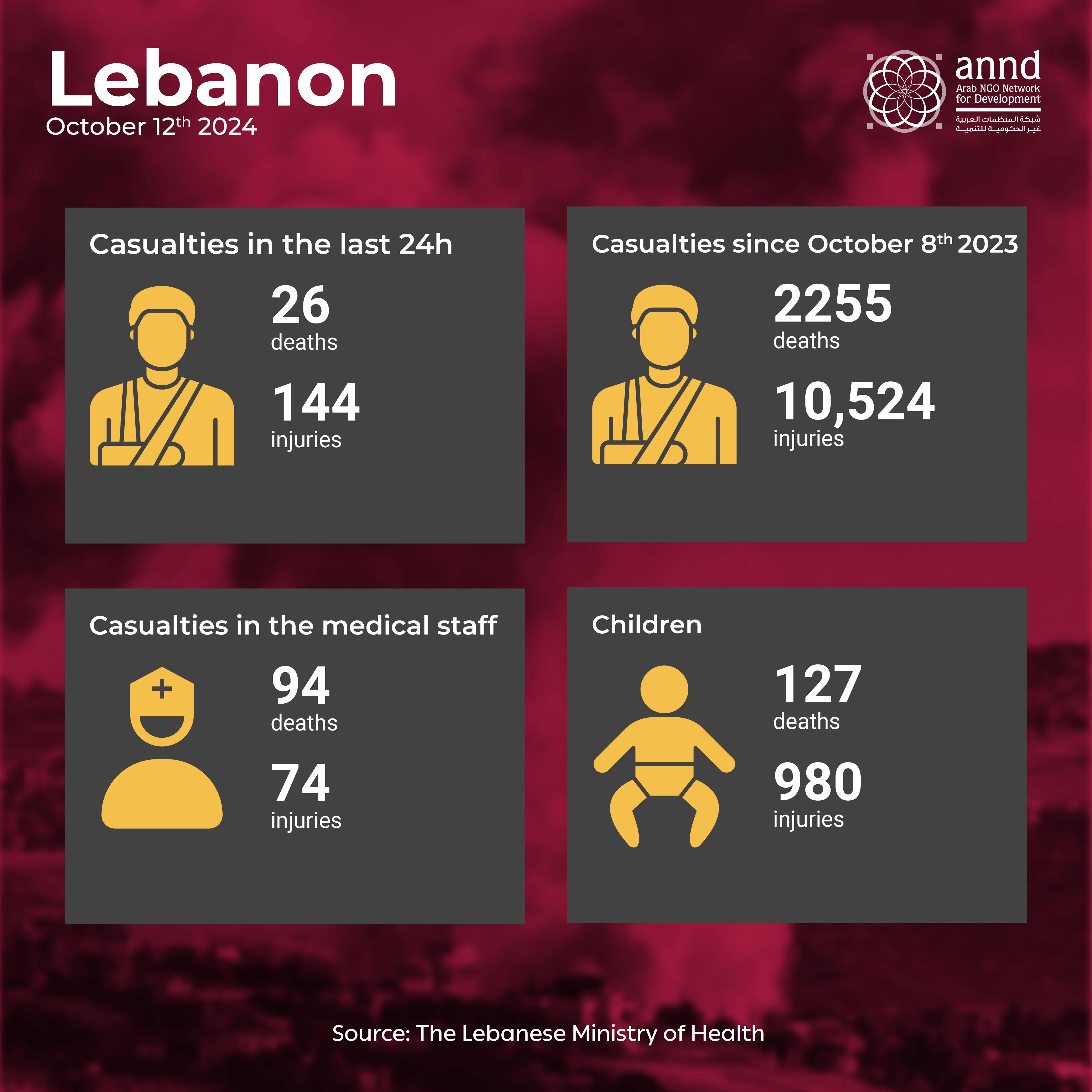
Political Positions in Lebanon
Lebanese Speaker of the Parliament Nabih Berri confirmed during his call with the French President Emmanuel Macron that Lebanon is ready to implement Resolution 1701, deploy the Lebanese army along the borders, and ceasefire, as adopted by the Lebanese government.
Lebanese Minister of National Defense Maurice Sleem called on the international community to exert pressure on Israel to force it to implement Resolution 1701 and halt its aggression on Lebanon.
The Head of the Executive Committee of the Lebanese Forces Party, Samir Geagea, organized a "national conference" to end the war in Lebanon, with limited participation from Lebanese political forces opposed to Hezbollah. After the conference, he stated that the urgent need is to first reach a ceasefire, stressing that political and diplomatic battles, along with neutral policies, are what will bring Lebanon to safety. He emphasized the importance of a national stance to end the suffering of the Lebanese people, restore the state, and outlined a clear roadmap out of the crisis, starting with a ceasefire and the election of a credible president committed to implementing Resolutions 1559, 1680, and 1701, as well as the Taif Agreement's relevant provisions, and pledged not to leave any weapon outside the framework of the state, on the basis that all the people are winners and there is no victor or vanquished. He added that the ruling group today is clinging to power without moving a finger, and the international community has no confidence in the failed ruling system that has turned Lebanon into a failed state. He added that the aggressive Israeli policy against Lebanon requires everyone not to wait, as history will not be merciful to those who back down from the battle to build the state because it is the essence of Lebanon’s existence.
Geagea also criticized the current ruling group for clinging to power without taking action, stating that the international community has no trust in the failed ruling system that turned Lebanon into a failed state. He warned that Israeli aggression requires immediate action, and history will not forgive those who retreat from the battle of building the state, as it is the essence of Lebanon's existence.
Leader of the Free Patriotic Movement, Gebran Bassil, commented on the anniversary of the Syrian intervention in Lebanon and the withdrawal from Baabda Palace on October 13, saying that the emptying of Lebanon of its Shia population is an attack on the country's existence. He emphasized that Lebanon should not become a battleground for foreign conflicts and reaffirmed his rejection of anyone imposing a president under the pretext of Israel's victory over Lebanon. Bassil stressed that Lebanon's 10,452 square kilometers should remain intact, and it should remain neutral in external conflicts that do not serve its interests. He reiterated that his party did not agree to open a support front and called for an immediate ceasefire by Lebanon.
Humanitarian Response in Lebanon
The World Health Organization reported that 100 healthcare centers in conflict areas in Lebanon have been closed, along with 5 hospitals due to damage from shelling.
George Kettaneh, the Secretary General of the Lebanese Red Cross, confirmed that the Lebanese Red Cross coordinates with the International Committee of the Red Cross and UNIFIL regarding movements, especially along the borders, to ensure the protection of volunteers. He noted that aid convoys are clearly marked with the Red Cross emblem to quickly deliver aid to danger zones and isolated areas.
Nasser Yassin, the head of the Risk Management Unit, highlighted that the approaching winter is a critical element in disaster response planning. Efforts are underway to provide heating for displaced individuals in schools, repair some shelter facilities, and supply clothing.
According to the Risk Management Unit, the following data was released:
- 1,032 centers have been opened to accommodate displaced individuals, with 863 centers reaching their maximum capacity. To date, 187,900 displaced people (41,000 families) have been registered in these shelters.
- General Security recorded the crossing of 320,184 Syrian citizens and 117,727 Lebanese citizens into Syrian territories.
- Over 169,000 people have received food and cash assistance, and 146,000 displaced individuals in 615 centers have been supported with meals that cover about 70% of the people residing in these shelters.
- 18 trucks loaded with food, water supplies, and hygiene products were sent to the south to support those affected in front-line border areas.
- Currently, about 60% of public schools are being used as shelters for displaced people, with efforts underway to ensure continued education (Ministry of Education).
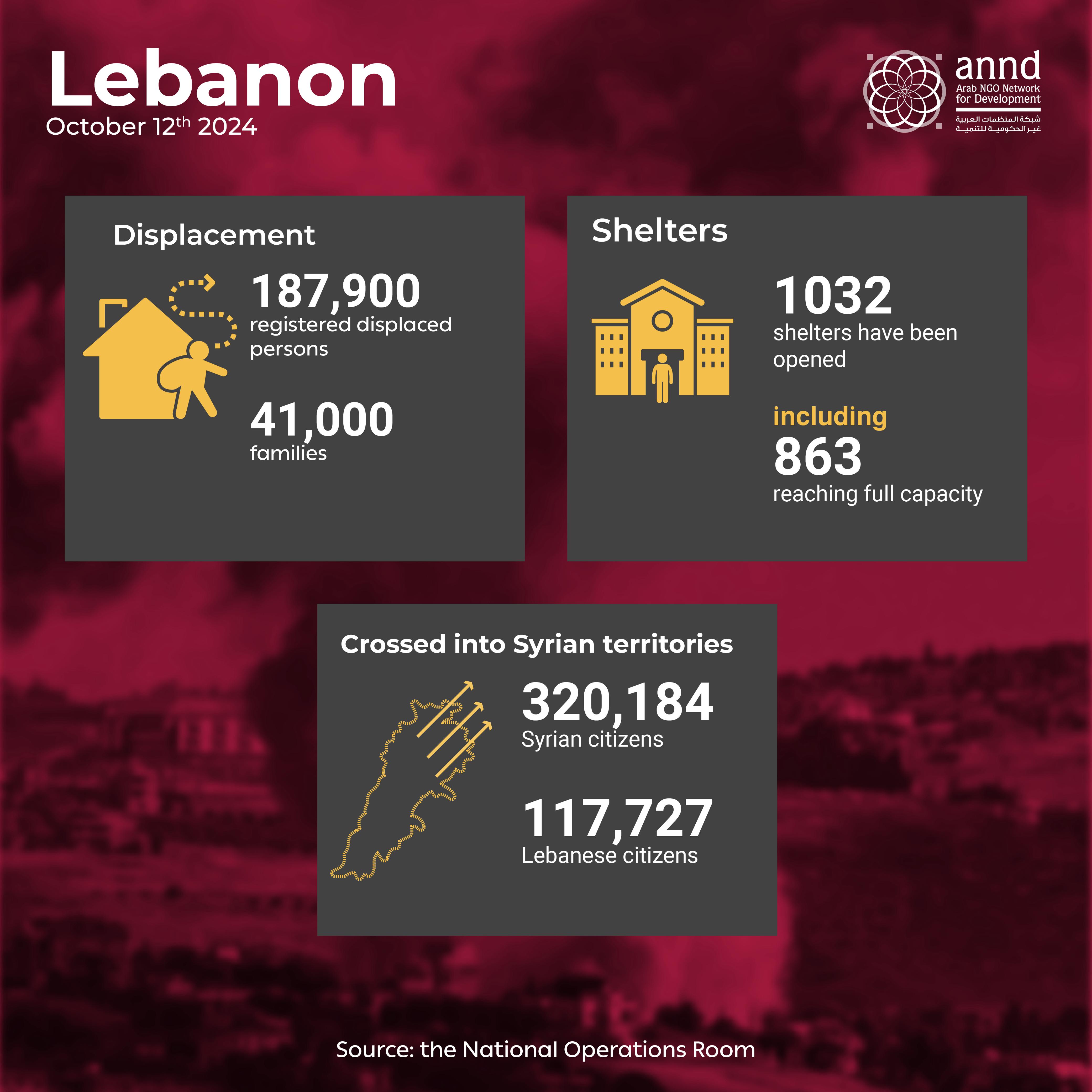
International Positions
Iranian Parliament Speaker Mohammad Bagher Ghalibaf arrived in Beirut, invited by Lebanese Parliament Speaker Nabih Berri, carrying a message from Iran's Supreme Leader Ali Khamenei. After meeting with Berri, Ghalibaf stated that Iran supports Lebanon and is working to establish an air bridge to assist displaced individuals. His statement did not contain any clear political message.
The 10 non-permanent members of the UN Security Council called for an immediate stop to any attacks on UNIFIL forces in Lebanon, expressing "deep concern" over recent assaults. They stressed that any deliberate attack on these forces constitutes a serious violation of UN Resolution 1701 and international humanitarian law, and urged an immediate ceasefire and strict compliance with international law.
US Middle East envoy Amos Hochstein, in a televised interview, affirmed that the US is committed to strengthening the Lebanese army and deploying it in the south. He stressed that the US has not given Israel the green light for military operations in Lebanon.
Pope Francis called for an immediate ceasefire on all war fronts in the Middle East, including Lebanon.
Turkish President Recep Tayyip Erdoğan stated that Israel is not only destabilizing Palestine and Lebanon but is also working to spread the fire across the region.
Irish Prime Minister Simon Harris called on Israel to respond to "the concerns of the international community" and not repeat the recent shooting at UNIFIL forces. The Irish Chief of Staff condemned the Israeli attack on UNIFIL as a blatant violation and reckless behavior that cannot be tolerated.
The Iraqi Prime Minister had a phone conversation with French President Emmanuel Macron, discussing Macron's recent call to stop arms supplies to Israel in its aggressive war against Gaza and Lebanon. They emphasized the importance of expanding this initiative, especially given the ongoing war against Palestinians and Lebanese people, which constitutes crimes against humanity and requires a serious stance from the international community.
The Iraqi Foreign Ministry called for an immediate ceasefire and urged the international community to fulfill its responsibilities in ensuring respect for international law.
The Israeli army indicated they are undertaking a comprehensive review at the highest levels of command to ascertain the details of attacks on UNIFIL sites. They later justified firing towards a "threat" near a UNIFIL site.
Gaza
On the 372nd day of the assault on Gaza, the Gaza Ministry of Health announced on Saturday that the death toll in Gaza has risen to 42,175, the majority of whom are women and children, since the Israeli aggression began on October 7. The ministry added that the number of injuries has reached 98,336, and thousands of victims remain under the rubble.
The ministry reported that Israeli forces committed five massacres against families in the Gaza Strip, resulting in 49 deaths and 219 injuries in the past 24 hours.
It also noted that a number of victims remain trapped under the rubble and on the streets, where emergency and civil defense teams cannot reach them.
In northern Gaza, residents told the Associated Press that many are trapped in their homes and shelters with deteriorating supplies, while bodies lie in the streets as bombing has hindered emergency responders.
The Israeli army did not respond to requests for comments on the strikes. Military spokesperson Avichay Adraee urged residents in parts of Jabalia and Gaza City to evacuate south to a designated humanitarian zone, as Israel plans to use large force in the areas it has ordered evacuated and "will continue to do so for a long time."
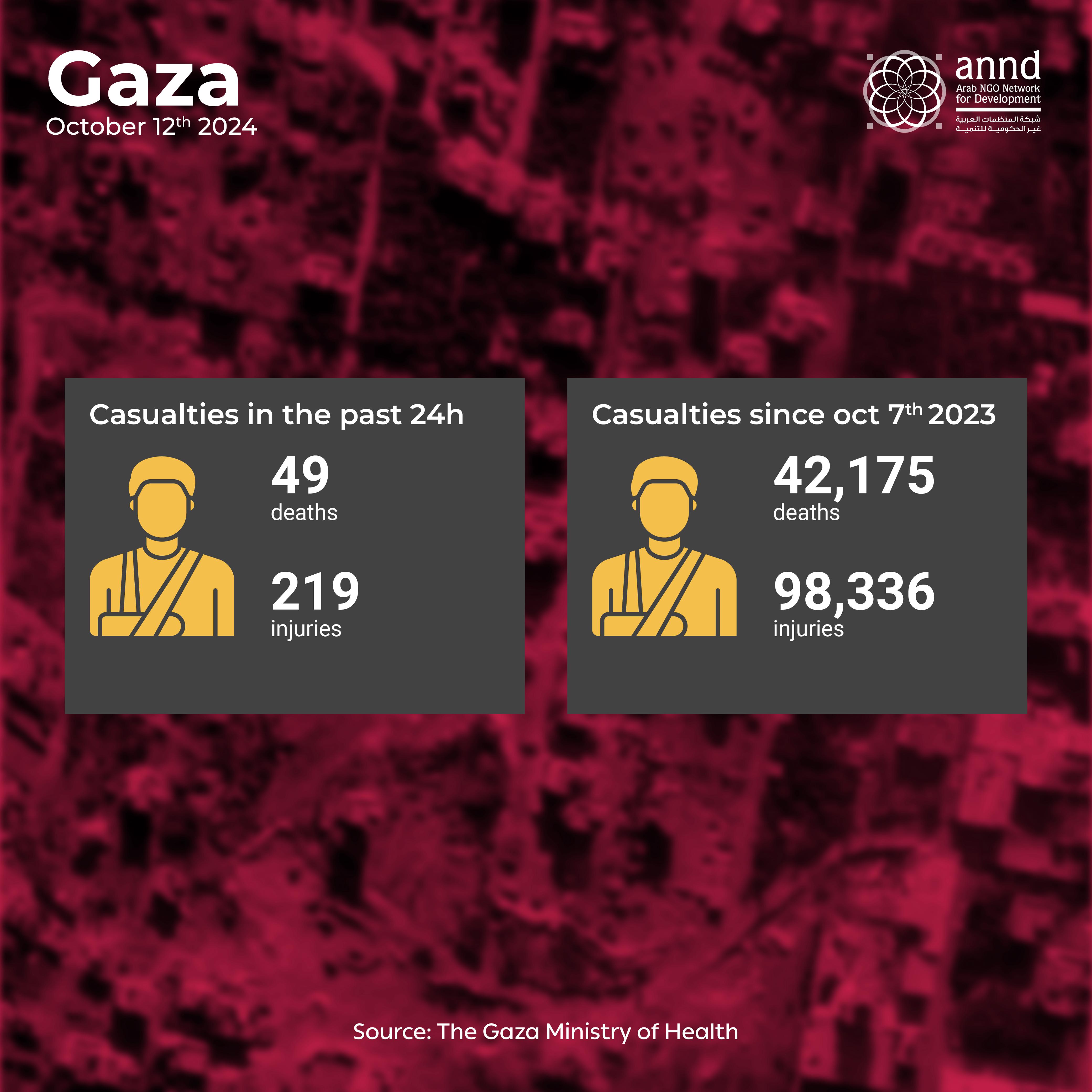
Recent publications


